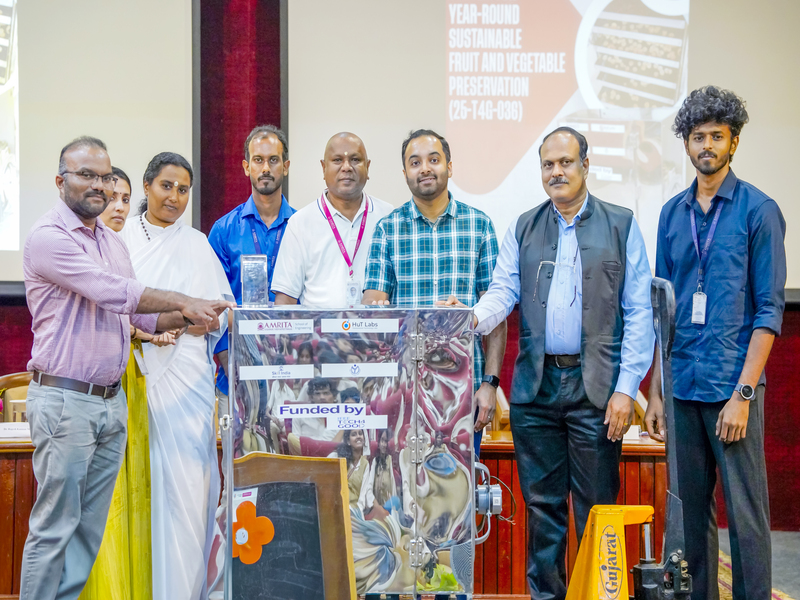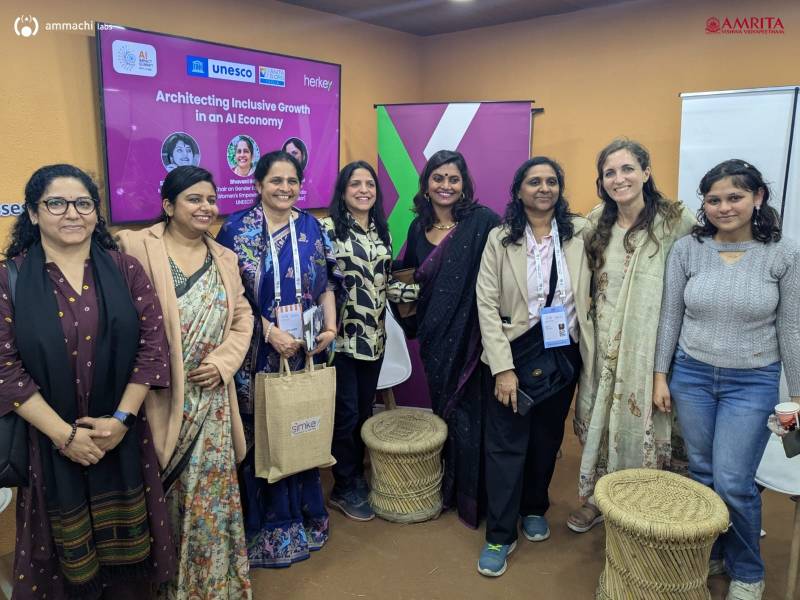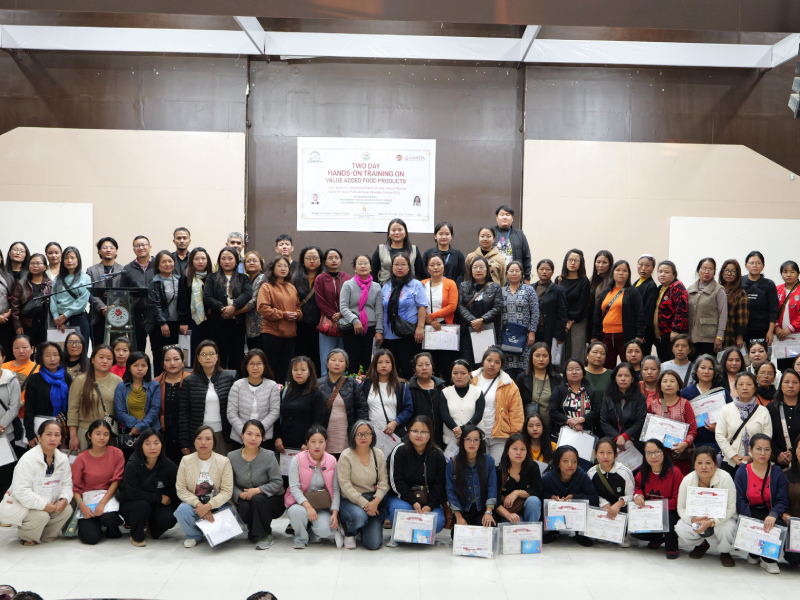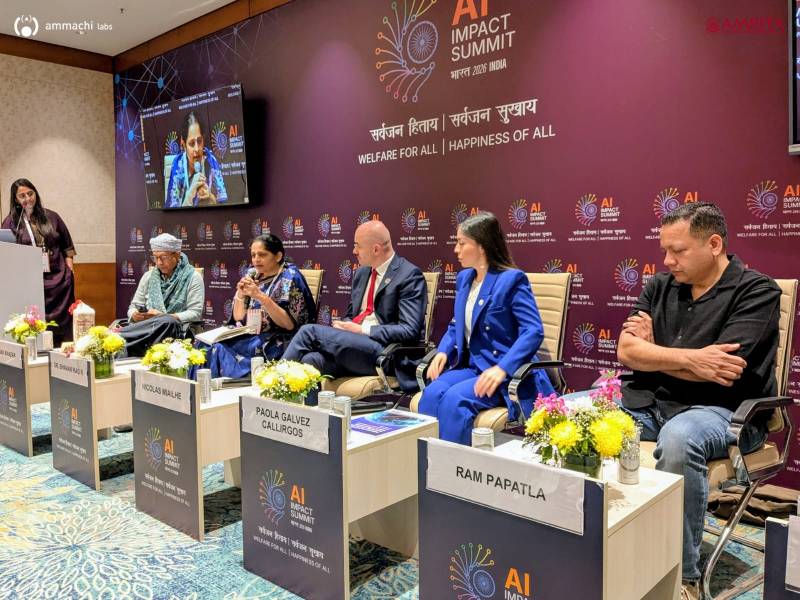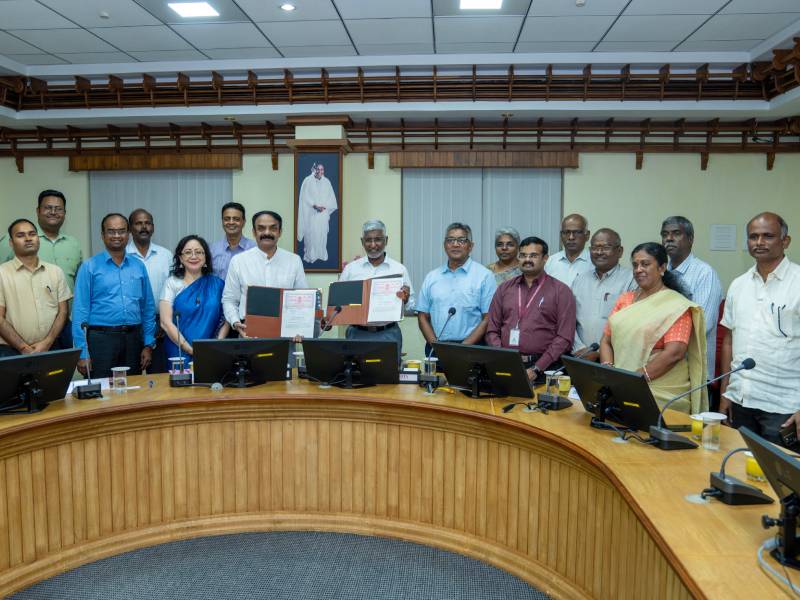Amrita Vasudha, Amrita Vishwa Vidyapeetham, organized an awareness session on the topic, “Saukhyam Reusable Pads” on 2nd November, 2017 at the Amritapuri Campus as well as on 3rd November, 2017 at Amrita School of Dentistry, Kochi.
At the Amritapuri campus, Dr. Jyothi S. N., Principal, Amrita School of Engineering, Amritapuri; Prof. Sreekala Menon, Chief Warden, Girls Hostel; Ms. Anju Bist, and other women HoDs from various Departments attended the session in addition to the students.
At Kochi campus, Dr. Balagopal Varma R., Principal, Amrita School of Dentistry, Kochi; and Dr. Beena Kumari, Head of Department, Oral Medicine and Radiology, Amrita School of Dentistry, Kochi, were present, along with women HoDs, doctors and students from different departments.
The speaker was Ms. Kavya Menon, a menstrual educator, who graduated with an MS in Bioprocess Engineering from IIT Madras. Focusing on the health, environment and the cost-benefit aspects of switching over to reusable sanitary napkins, she motivated girls to consider more eco-friendly ways to manage their periods.
The sessions witnessed the launch of Saukhyam Reusable Pads made from banana fiber, introduced by Sri Mata Amritanandamayi (Amma), Chancellor of Amrita Vishwa Vidyapeetham, for ensuring hygienic and eco-friendly ways to handle menstruation, the initiative not only empowers women but also helps them make sustainable choices. The word Saukhyam means happiness and well-being, and the consecutive sessions aimed for a positive transformation along these lines.
Most disposable sanitary pads use fluff pulp from pine trees as the absorbent material which is bleached to get the pure white look. The bleaching process leaves behind trace amounts of dangerous dioxins, which remain on the pad as one uses it. Dioxins are potent carcinogens. Some pads also contain super absorbent polymers (SAP) to help maximize absorbance which are also suspected carcinogens; they can also harm the nervous and respiratory systems.
There is no safe way to dispose the modern sanitary pad after use as it is 90% plastic and therefore non-biodegradable. The incineration of these pads leads to the release of dioxins into the air. It is our duty to find a sustainable way to effectively serve the needs of women.
“The objective was to give the women of this generation an opportunity to learn, imbibe, practice and spread the essence of sustainable menstruation throughout their lifetime. We feel that this objective was met,” stated Dr. Jyothi.














